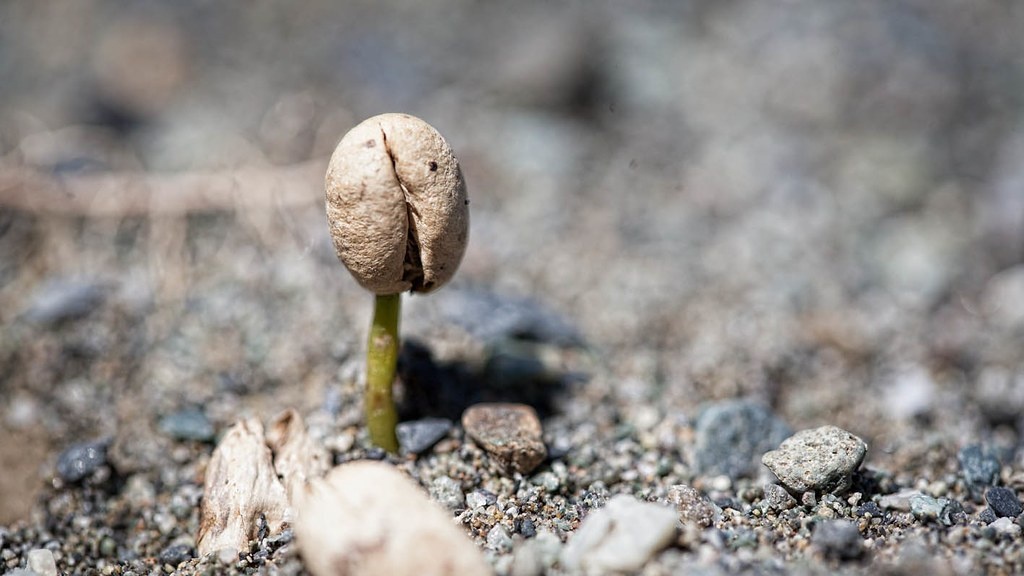Gastritis is an inflammation of the lining of the stomach. In some cases, it may be caused by a bacterium known as Helicobacter pylori, but in other cases, gastritis can be caused by medications, alcohol abuse and certain health conditions. Caffeine has been linked to an increase in gastritis symptoms, leading some people to turn to decaffeinated coffee.
But is decaf coffee safe to drink when you have gastritis? To answer that question, we need to look at the science. Researchers have found that coffee and tea, both decaffeinated and caffeinated, can cause an increase in gastric acid and that coffee can increase the production of stomach acid with H. pylori.
However, the research is mixed when it comes to decaffeinated coffee and gastritis. While some studies have found that decaffeinated coffee can increase gastric acid production, others have found that it can actually reduce it, since caffeine is removed.
And while there isn’t a clear consensus on whether decaf coffee is safe to drink when you have gastritis, many experts recommend avoiding it altogether. The acidity of coffee can potentially aggravate the symptoms of gastritis, so it is best to err on the side of caution.
It is also important to note that decaf coffee, even when it does not contain caffeine, can still have some level of acidity that can increase symptoms of gastritis. Additionally, even decaffeinated coffee can contain compounds that can trigger an immune response, which can also lead to inflammation and discomfort.
It is best to talk to your doctor if you need further advice on whether or not you can drink decaf coffee with gastritis. Your doctor may suggest other options that can still satisfy your craving for coffee without exacerbating the symptoms of gastritis. For example, herbal teas, certain plant-based milk alternatives, and even kombucha, which has very low levels of acidity and can help restore balance to your stomach.
Managing Gastritis Symptoms With Medication
If you have gastritis, it is also important to consider other methods of treating and managing the symptoms. While avoiding decaf coffee may help reduce the discomfort, medications may be required to help manage and reduce the symptoms of gastritis. These can include antacids, H2-blockers, and proton-pump inhibitors.
Antacids can help neutralize stomach acids and are generally safe to take. They can help provide relief from burning sensations and pain associated with gastritis. H2-blockers can reduce the production of stomach acids and can be used to provide long-term relief. Proton-pump inhibitors, on the other hand, are used to target specific areas where excess stomach acid production can be problematic.
It is also important to consider your lifestyle when treating and managing gastritis symptoms. Avoiding certain foods, such as processed and high-fat foods, as well as alcohol and smoking, can help reduce the discomfort associated with gastritis.
Dietary Changes To Help With Gastritis
There are certain changes that you can make to your diet to help improve the symptoms of gastritis. For example, eating smaller meals more often can help reduce the amount of acid produced in the stomach. Additionally, sticking to soft, low-acid foods, such as oatmeal, yogurt, bananas, potatoes, and soup, can help reduce the discomfort associated with gastritis.
It is also important to stay hydrated by drinking plenty of water. This can help reduce the acidity in the stomach and can help alleviate the symptoms of gastritis. Additionally, it is important to avoid spicy and fried foods, as they can exacerbate the symptoms.
In addition to dietary changes, there are certain supplements that can be taken to help reduce the symptoms of gastritis. Probiotics can help balance the levels of good and bad bacteria in the stomach, while certain herbs, such as licorice root, aloe vera, and marshmallow root, can help reduce inflammation and repair the lining of the stomach.
Lifestyle Changes That May Help
In addition to dietary and supplement changes, there are certain lifestyle changes that can help reduce the symptoms of gastritis. Reducing stress can help, as it can reduce inflammation and help reduce the discomfort associated with gastritis. Additionally, regular exercise can help improve digestion and can help reduce the symptoms of gastritis.
It is also important to get enough rest, as this can help the body to heal and can help reduce the symptoms of gastritis. Additionally, avoiding cigarettes and alcohol can help reduce the discomfort associated with gastritis. Overall, it is important to talk to your doctor if you have any questions or concerns about gastritis to make sure that you are getting the right treatment.
Seeing A Medical Professional
Finally, while it is possible to make dietary and lifestyle changes to help reduce the symptoms of gastritis, it is important to see a health professional if your symptoms do not improve. Your doctor may suggest prescription medications, and in severe cases, surgery may be required.
Your doctor can also refer you to a nutritionist to help you create an individualized dietary plan. This may include advice about which foods to eat for breakfast, lunch, and dinner, as well as which supplements may be beneficial for your individual needs.
Overall, it is important to talk to your doctor if you experience any symptoms of gastritis. It is best to avoid decaf coffee if possible, but you may need to make other dietary and lifestyle changes to help reduce the symptoms. Additionally, your doctor may suggest medications, supplements, or other treatments that can help you manage the condition.




